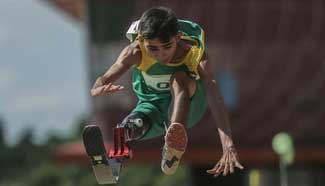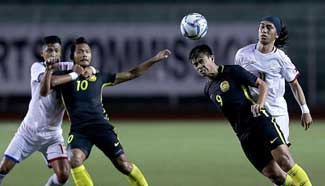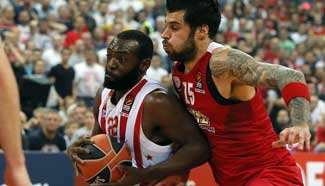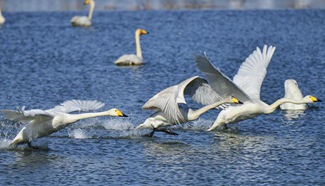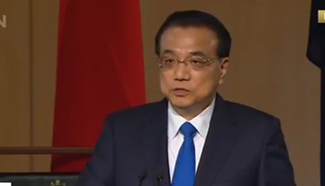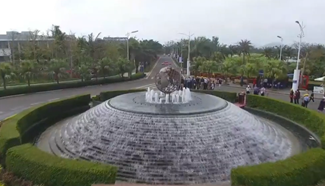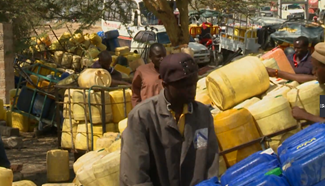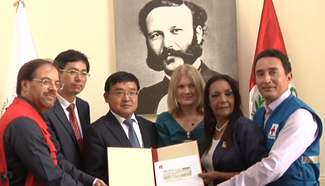BEIJING, March 23 (Xinhua) -- 2009 World Champions China didn't perform well at the 2017 Beijing World Women's Curling Championship, with the host team only getting two wins from the first 11 round-robin matches and losing the chance to directly enter the 2018 Pyeongchang Olympic Winter Games.
Chinese skip Wang Bingyu admitted that she and her teammates were under pressure on the home court. "All of us want to perform better, but the pressure is a bit high."
Team coach Tan Weidong pointed out that with so few people playing curling in China, it is difficult to select players for the national team.
"There are actually no people to select for the national team; the selection range is no more than 200 players," Tan said.
Yue Qingshuang, a retired Chinese curling player who helped the team win the 2009 World Championship, expects more people to pick up curling in the future.
"Curling has a strong cultural basis in North America and Europe, in Canada for example, there are many curling clubs even in very small towns and many people over 60 years old still play curling," Yue said.
This time in Beijing, Canada was the only undefeated team and the first to qualify for the playoffs at the World Championship. Behind the scenes in the North America country, there are some 1.5 million curlers and near 1,000 curling clubs.
To date, China has won three World Women's Curling Championship medals, with their best result coming in 2009, when Wang Bingyu's team won gold in South Korea. China also won silver in 2008 and bronze in 2011.
However the sport is not yet rooted in China; there are only seven curling rinks and less than 900 registered curling players in the country.
Tan expects Beijing 2022 to be a catalyst in developing curling in China. "I believe that within five or ten more years, China's curling will enjoy fast development in terms of competition level and popularity."
"The Olympics in Pyeongchang will help the growth of curling in South Korea. We can already find five to seven South Korea teams, including juniors and adult national teams, who went to Canada to train and compete in recent years. This will be very helpful for the South Korean team to improve their level of play," Tan added.
The Chinese Curling Association signed a memorandum of understanding with the World Curling Federation in December 2016, which will see the two organizations work together to develop the sport of curling, both in China and around the world. This work will also play a vital role in the preparations for Beijing 2022.
World Curling Federation President Kate Caithness says she sees a bright future for winter sports in Asia.
"It is a good time for winter sports in Asia with the next two Olympic Winter Games set to be held in Pyeongchang in 2018 and in Beijing in 2022. The award of the 2017 World Women's Curling Championship to Beijing reflects this and rewards China's hard work in developing our sport," she said.
China hopes to have 300 million people participating in winter sports by 2022, and Caithness for her part hopes that curling can become one of China's favorite winter sports.

